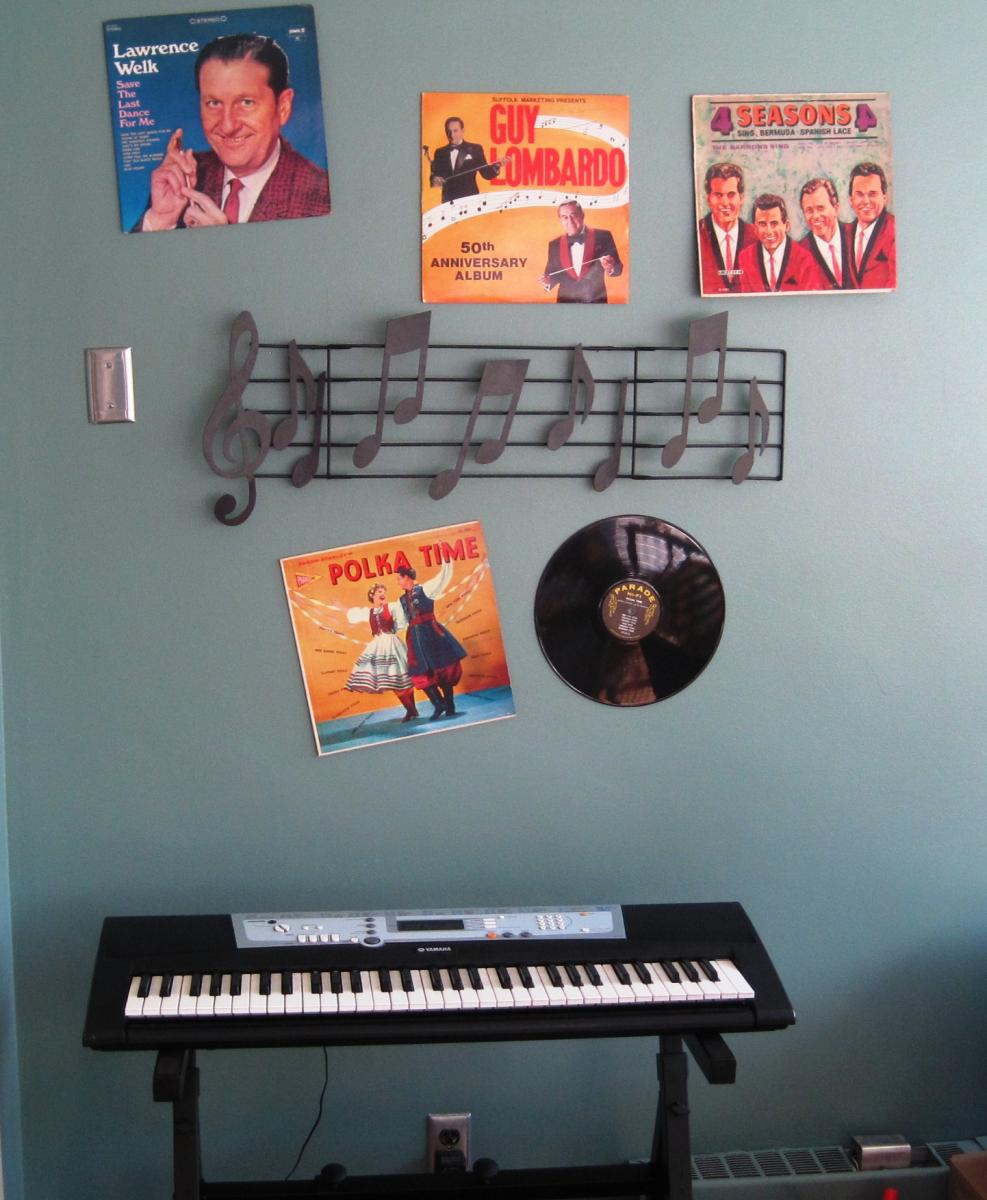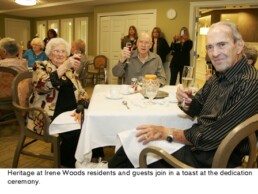Ecumen Blogger Jim Klobuchar: A Post Office Love Affair
Once every five or six minutes the pre-Christmas line in the post office where I live revealed heroic symptoms of actually moving.
If you stood on tiptoe you could catch sight of the postal worker explaining the difference between regular and express mail to a customer who wanted to ship four cardboard boxes of honest-to-God Scandinavian cooking to relatives in Fresno, California.
The post office attendant waited while the customer consulted his wife. The line waited while they argued. The customer signaled triumphantly that he would take the expedited option. The line cheered. I joined them.
But the customer behind me grumbled.
“It’s a farce,” he said. “The post office in this country is dying. They’re trying to do this stuff on the cheap. They’re selling some of their buildings to pizza joints. They haven’t got enough money to handle the business they do get at rush time.”
I didn’t ask him, but he’s probably not going to ship his Viking horns to his grandpa in Scottsdale by postal express.
There clearly is a powerful demand and need for private express shipping in America today. It’s a critical part of today’s commerce and offers a speed of delivery around the clock with which the publicly supported post office cannot compete.
But I don’t think we want to see the post office disappear. And I’m not sure that we can.
There’s obviously more than sentiment involved here. The private express fleets make much of the old postal services obsolete. Until the 1970s if you wanted get in touch with somebody miles away you wrote a letter or telephoned long distance. Today you send e-mail or pick up the cell phone. If you want to talk face to face with them — laughs, tears and all — that too is available on the big screen.
So the public’s post office has to grub along doing what is available and with reasonable speed—daily delivery of the mail to corner mail boxes. That’s not done, incidentally, with budgeted taxpayer money but basically with the money the postal service makes in providing its services. And, of course, the demand for its services is shrinking, in the letters we used to write. But its work load is still huge and some of it simply irreplaceable.
Yet what much of the public doesn’t know is that the private delivery services often work with the postal service. And it’s not as though the post office is content to pursue its business by forever increasing the cost of its “Forever” stamps. Those mailings you get from a hundred sources, the CDs you buy on the internet, the books you buy from Amazon—most of those are coming from the post office because that’s the cheapest way for thousands of businesses, churches, politicians and fundraisers to communicate.
And then add the mail you get from fundraisers who include two cents, or five cents or ten cents or more to shame you into contributing. Those, too, are coming in your postal box, but so, too, do your checks and your birthday card from grandma, who may be unfamiliar with Google and very probably unfamiliar with Skype.
All of this may not thrill you as much as a refund from the credit card company. But that too comes in the mail because, well, the country pretty much can’t get along without the post office and the service it provides—and the mostly courteous service, I have to say.
Maybe part of this reaches back to my love affair with the post office when I was growing up in northern Minnesota during the depths of the Great Depression.
Each family rented a small mail box at the community post office. As Christmas approached, in the midst of our two week recess from school, some of the kids would stake out a watching vigil not far from the family mail box. The boxes were small, and if mail arrived that was larger than the usual letter or magazine, the postal clerk would put a little red slip into the box announcing: “Parcel too large for box. Redeem at postal desk.”
I had four married aunts in Milwaukee at the time, all of them sisters, who had moved there after high school because jobs were available for women in the Milwaukee manufacturing plants. They never failed my brother and me at Christmas. And so when that little red slip announced itself in our mailbox, (I still remember the mailbox number— 208), we raced to pluck it out of the box and present it to one of the clerks, who would retrieve the package from Milwaukee.
We didn’t bolt for home immediately. I did say there were FOUR aunts, three still not heard from. So the scene played out again, and then again.
There’s more than sentiment here. The postal service in this country cannot be what it was as the prime and solitary delivery service. This is the age of men on the moon, automatic pilots, of superspeed and din, when screaming fans in the stadium decide who wins the game, when violence on the screen captivates our young people—as well as the old—and when the postman no longer rings twice because the postman is delivering mail to boxes on the curbs.
But he and she are not obsolete. They still have a need to fill. And for all the heat and jibes the public postal service takes, we don’t lessen that need by ignoring its struggles.
Watch Astonishing Evidence of What Music Can Do for Alzheimer’s Patients
Henry, an advanced Alzheimer’s patient who barely speaks, literally comes to life in this video clip dramatically documenting how music can bring back memories and engagement. The clip is excerpted from “Alive Inside,” a documentary film that recently premiered at the Sundance Film Festival. It’s uplifting, touching and hopeful.
An Ecumen Consultant’s Quest To Make Sense of Dementia
Tom Stober, an expert on process and efficiency, was routinely going about his work one day when he walked into a room and came face-to-face with something that “shook me to the core.” It was not logical. It was not rational. The normal rules of organization did not apply. On some deep level, it rocked his orderly world.
It was a memory care community, where residents with dementia live.
Tom works for Minnesota Lean Partners, which had been hired by Ecumen over a year ago to improve customer experiences by teaching staff how to focus on what is truly important—what really adds value— and eliminating unnecessary things that get in the way of that goal. This was his first consulting assignment in senior services. A mechanical engineer by training, Tom had worked for many manufacturing companies, most notably Toyota, where he first learned the principles of “lean” management from the masters.
The Ecumen training sessions Tom was conducting were going well. He was teaching, and he was learning. But that first exposure to memory care was life-changing for him.
“I had heard about Alzheimer’s and dementia,” he says, “but I was never truly exposed to the impact that this has on the residents as well as their families.”
After visiting the memory care community at Ecumen Detroit Lakes, Tom remembers going to his hotel room that night preoccupied with his experience. He just could not get it out of his mind. “I was troubled by the degree that this bothered me. I struggled with the fact that these crippling diseases destroy what was once functioning human beings as mothers, fathers, sisters and brothers.”
There was just no apparent logic to it.
Yet as Tom watched the caregivers at work, he was in awe of “how loving, caring and forgiving” they were— and how effective.
“I was amazed at the strength and caring of the Ecumen staff working in this environment day-in and day-out,” Tom recalls. “Being briefly exposed to some of the behaviors that Ecumen care providers experience daily, it had a sincere and profound impact on me. I have a much higher appreciation for their contributions to the organization and their dedication to providing a high quality care to those that truly need it.”
A powerful emotion swept over him. “What I saw made me more dedicated to the work Ecumen is doing and made me want to help the staff more,” he recalls.
“I know caregiving is a job I could not do,” Tom says. “It takes a certain type of person.”
But he realized he is the certain type of person who could make caregivers’ jobs easier. That could be his way of coming to terms and making a contribution.
From Tom’s point of view, you can always make things better with organization, standardization and elimination of useless and wasteful practices—whether in a manufacturing plant or a memory care community.
“This could be my small way of paying it forward,” he decided.
On the most basic level, he noticed right away that caregivers spent a lot of time just looking for things they needed, often going in and out of rooms several times looking for supplies and equipment. So he helped staff systematically figure out how to put all the tools of care in the same place in every room. With everything they need easy to find, they are freed up to spend more time in direct care.
Then he started digging deeper. How can we organize care around the biorhythms of the residents? When is the best time of day to have activities? How can space best be used to optimize residents’ enjoyment? How can we improve the residents’ environment and create better experiences? Recently, he worked with the memory care staff at Ecumen Pathstone Living in Mankato, Minn., to completely revamp the memory care community. Go to Ecumen’s Changing Aging blog to read about this effort.
Over the past year and a half, Tom has trained more than 1,000 Ecumen employees in “lean” principles and has run more than 40 events to analyze situations and implement continuous improvements. And his work continues— not only in creating better practices but also sustaining them.
As Tom was working with Ecumen and coming to grips with his reaction to observing dementia firsthand, his personal story took another turn. Tom learned that his own father is now in the early stages of dementia.
The lean management expert bonded with the dementia experts at Ecumen.
“I have gained so much knowledge about dementia,” Tom says. “The Ecumen nurses have really helped me better understand what is happening with my father, and how it’s happening and the progression to expect moving forward.”
And the paying it forward continues.
—
Ecumen received a Performance-based Incentive Payment Program (PIPP) award from the Minnesota Department of Human Services beginning October 1, 2011 - September 30, 2015. LEAN the Ecumen Way is a company-wide initiative to improve the way Ecumen delivers services in day-to-day operations. LEAN focuses on eliminating non-value added activities in our work— “wastes,” which get in the way of the more important value-added activities that customers desire.
In addition to improving resident experiences by introducing LEAN management techniques, Ecumen has pledged to reduce antipsychotics among people with dementia and improve lives in all Ecumen nursing homes through its Awakenings program (see Ecumenawakenings.org). In 2010, Ecumen was awarded a three-year performance-based grant from the State of Minnesota’s Department of Human Services to expand its pilot Awakenings program to Ecumen’s 15 nursing homes. Such grants help organizations expand innovative, results-based initiatives. These homes serve more than 1,000 people, including some of society’s most challenging dementia cases. The Minneapolis Star Tribune recently profiled the Awakenings program.
MacPhail and Ecumen Team Up For Dementia Music Therapy Program
The Minnesota State Arts board recently awarded MacPhail Center for Music in Minneapolis a grant of $96,690 to support music therapy for seniors with Alzheimer’s and related dementias, and Ecumen Centennial House in Apple Valley is one of the sites selected for the program.
MacPhail with be working with Ecumen and two other senior living companies, along with the Alzheimer’s Association of Minnesota-North Dakota, to provide music programs specifically designed for seniors with dementia-related memory loss. Work will begin in July to develop the therapy program at Ecumen Seasons at Apple Valley.
Studies have shown that music can reduce agitation and lessen behavioral issues common among those with dementia. Music helps people connect, even after verbal communication has become difficult.
According to the Alzheimer’s Foundation of America: “When used appropriately, music can shift mood, manage stress-induced agitation, stimulate positive interactions, facilitate cognitive function, and coordinate motor movements. This happens because rhythmic and other well-rehearsed responses require little to no cognitive or mental processing… A person’s ability to engage in music, particularly rhythm playing and singing, remains intact late into the disease process because, again, these activities do not mandate cognitive functioning for success.”
To read more about how music can help dementia, go to this Alzheimer’s.org explanation of how the therapy works.
Revitalizing Memory Care at Ecumen Pathstone Living
The Memory Care team at Ecumen Pathstone Living recently decided it was time for a change. Inspired by a training video about state-of-the-art thinking on how to care for people with Alzheimer’s and other forms of dementia, they looked around the memory care unit and saw that something important was missing.
The 21-room facility, built in 2006, had a clean, elegant look. What it lacked was the ambiance of home. 
So for three days, the team did a complete review of the program, the residents’ individual interests and the physical setting. They set out to create a space where residents could directly engage with things that interest them in a space that feels like home.
The team cleaned, sorted and organized. They identified “themes” based on residents’ interests and analyzed the space for ways to improve engagement.
One thematic approach was to bring back the past, which can be very therapeutic for dementia patients. Now there is a “Reminiscence” area which will be changed out throughout the year to include things like seasonal décor, wedding dresses, farming, baseball, fur coats, jewelry, etc. Every article in the area is there for engagement--to be handled, tinkered with and enjoyed.
There is also an “Old Mankato” area with historic photos on display and a wall where residents have their own personalized baskets with items from home special to them. And in the “Nursery” area many residents like rocking and cradling dolls, which encourages the feeling of caring for others.
Another theme was to bring the outdoors inside with a “Garden/Sensory” area. In a sunroom near the front of the facility, flowers, lettuce, radishes, basil and parsley are now growing in raised-bed planters. In this area, residents can hear the sounds of rain drops, wind chimes, traffic and children playing.
Also, there is a “Nature/Relaxation” area with comfortable seating around a large fish tank and a “TV/Game/Music” area with a recreational theme, where families can gather.
 “There is a new energy around our neighborhood,” said Angela Stevens, RN, the assisted living manager. “Residents are much more engaged. Plus, this was a great experience for staff. We saw what a difference we could make in a short time just by looking at the situation differently. It has been very rewarding to see the results.”
“There is a new energy around our neighborhood,” said Angela Stevens, RN, the assisted living manager. “Residents are much more engaged. Plus, this was a great experience for staff. We saw what a difference we could make in a short time just by looking at the situation differently. It has been very rewarding to see the results.”
And family members agree. Lois Jaeger, whose mother lives at Ecumen Pathstone Living, sent this appreciative note:
“We miss them – our loved ones suffering from dementia or Alzheimer’s. No, they haven’t passed away, but so much of the essence of who they are is slipping away from us. How wonderful it is to have people and a program dedicated to drawing out bits and pieces of the ones we love so dearly.
“It has been exciting to learn about and watch as ‘Awakenings’ develops physically and programmatically at Pathstone Way. What fun to see the activity areas for gardening, costuming, ‘child’ care, etc. take shape. How gratifying to see the personal basket for my mother proudly displayed with evidence of who she really is. The ‘biography’ there, compiled by the staff from bits of information I supplied, is a lovely tribute to her and acknowledges the real person she has been and still is.
“But these tools would not mean as much as they do without the commitment and enthusiasm of the staff to utilize them. Residents are involved in projects that are designed to make them feel productive and contributing – just as they were before their illness. Smiles and laughter are coaxed out as sparks of humor and imagination are ignited by a costume or a picture. These things might seem small to others, but to those of us who love to see reflections of the person we remember they are enormous.
“My mother is surrounded by a staff that not only cares for her physical welfare but also understands and appreciates that locked inside a failing memory there is a history of a life spent in loving and giving. I am so thankful!”
Ecumen Awakenings Insight: The Crucial Difference Between Delirium and Dementia and Why A Care Team Must Fully Explore It
Ecumen Awakenings Insight and personal story from Shelley Matthes on the crucial difference between delirium and dementia.




